One of the last blog posts that I wrote about doing hand-made Christmas presents started with me confessing that my grandma did most of my handicraft lesson tasks at school and that I have never been good with creating things with my hands.
I don’t want to sound like a broken record, but being always transparent and honest… reading falls into the exact same category. It is something I have not enjoyed and avoided throughout most of my life.
When I was little I was too impatient to sit down and read children’s books and when I grew older I told myself I am too busy to do it. Spark-notes and friends’ summaries for compulsory reading did the work just fine.
I have always admired people who read a lot. To me they’ve seemed more well-rounded and intelligent. To myself I told though: “Well, good for them. I am just not a reader.”
Pippi Longstocking was literally one of my favourite books until high school. Mainly because I hadn’t read too much after that.
Why I share this is that you might relate to not being a fan of reading. Or even hating it, the way I did for a while. At the end of the day it is actually just a habit. Like any other- it is possible to change it. It is not easy… but doable when wanted.
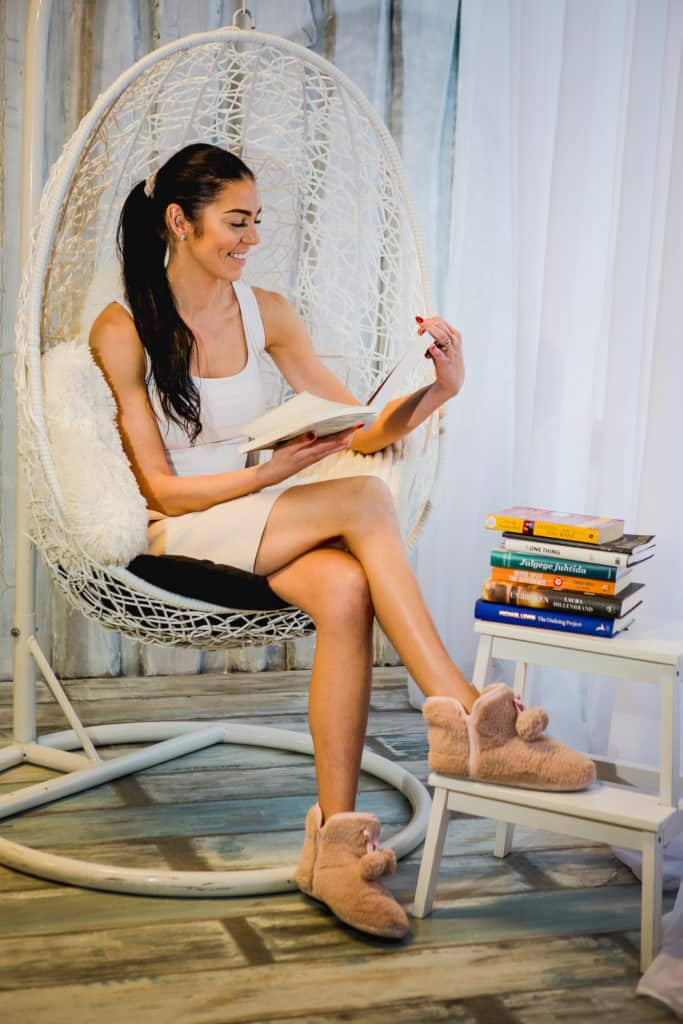
Reading-wise things changed when I went to college and started my professional career on the side. I was thrown into the personal development world and all of a sudden self-help books became an obsession. I started reading them because I wanted to emulate people who were successful in my eyes and knowing they did this, I figured it can’t hurt.
Now I went to the other side.
I swallowed all the “10 steps to….” and “This is how you….” books and for that era of my life it was necessary, powerful and great. I remember thinking- “Wow, I’ve definitely missed out…the knowledge in these books is phenomenal!”
After some time though I over saturated my mind with that and couldn’t pick up another book.
So I didn’t read again. For years. Maybe one book here and there, but never formed a great habit with the activity nor identified myself as a reader.
Multiple years I gave a New Year’s resolution that now I will read 1 book a month… but never did.
Last year I was fed up with it and promised to follow-through. Just adding true commitment to a goal, changes the whole perspective.

I also figured out what kind of books really get me excited. I am too realistic for non-fiction, but too fed up with technical self-help books. I started liking autobiographies and stories of real people sharing real-life things. Not as a guide, but through a personal experience.
Even with a busy schedule I decided that reading is something every evening I protect time for because I choose to and I want to. I also started listening to audiobooks, which I hadn’t much before.
So without further due here are the small book-reviews of 2019:
1. “The Undoing Project” Michael Lewis

This book is about two Israeli psychologists Daniel Kahneman and Amos Tversky who shook the world with their research about the decision-making process and making judgements. They challenged the concepts of how we think about how we think. They were brilliant minds and became heroes, but at the same time were just friends and normal people going through their own struggles. A great, captivating book. Key take-aways/ reminders:
- “When people make decisions, they don’t seek to maximise utility, they seek to minimise regret.”
- “Knowledge is anything that increases your ability to predict the outcome.”
- “When you are a pessimist and a bad thing happens, you live it twice. Once when you worry about it and the second time when it happens.”
- “The human mind is bad at seeing things it does not expect to see, and a bit eager to see what is expected to see.”
2. “The Saint, the Surfer, the CEO” Robin Sharma

This is an easy, yet profound book. Written in a well-flowing manner it talks about the main life lessons of three people. The story lines are easy enough to be relatable, but deep enough to be educational. Key take-aways/ reminders for me:
- Always ask yourself- “Did I live wisely? Did I love well? Did I serve greatly?”
- “Don’t shy away from year fears, step right into them.”
- “For every finger we point to others, we point three fingers to ourselves. Whatever we blame others for, the root is mostly inside us.”
- “Turn your breakdowns to breakthroughs.”
- “Don’t let anyone walk through your heart / mind with their dirty feet!”
- “Your happiness is proportionate to how helpful you have been to the world.”
- “For you to win, others don’t have to lose.”
3. “Becoming” Michelle Obama

I am not very involved with politics, but one thing I have always admired is Michelle and Barack Obama’s marriage. Reading this book gives a new perspective to little things that otherwise are never thought of. Like going to movies or dinner without a thorough plan of how some streets have to be blocked and a group of bodyguards around. How every word you say, every clothing item you wear, how every moment of your life could be judged or commented. Michelle is definitely a huge role-model to me with the strong pursuit of improving causes important to her, protecting their relationship, supporting her husband throughout everything and being a strong, powerful woman. Key take-aways / reminders for me:
- “For me, becoming isn’t about arriving somewhere or achieving a certain aim. I see it instead as forward motion, a means of evolving, a way to reach continuously toward a better self. The journey doesn’t end.”
- “Your story is what you have, what you will always have. It is something to own.”
- “Failure is a felling long before it becomes an actual result.”
4. “Shoedog” Phil Knight
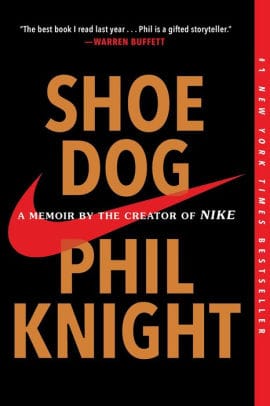
Nike has always been one of mine and my husband’s favourite brands and it was absolutely fascinating to learn how this empire got started. Just like all big things- it all started with one person with a huge dream, a relentless work-ethic and belief to make it happen. A great inspiration for every entrepreneur! It is not only a description of Phil Knight’s awesomeness and business success, but also a deep dive into his personal hardships and the ups and downs of running the business. Key take-aways / reminders:
- “You measure yourself by the people who measure themselves by you.”
- “Let everyone else call your idea crazy… just keep on going. Don’t stop. Don’t even think about stopping until you get there, and don’t give much thought to where “there” is. Whatever comes, just don’t stop.”
- “My hope was that when I failed, if I failed, I’d fail quickly, so I’d have enough time, enough years, to implement all the hard-won lessons. I wasn’t much for setting goals, but this goal kept flashing through my mind every day, until it became my internal chant: fail fast.”
5. “Born a Crime” Trevor Noah

I am used to seeing Trevor Noah on “The Daily Show” with sharp clothes, witty jokes and polished look. To read what he has been through to become who he is today is just crazy. He is an amazing example of overcoming adversity and succeeding despite all the adds against you. Key take-aways/ reminders:
- “We tell people to follow their dreams, but you can only dream of what you can imagine, and, depending on where you come from, your imagination can be quite limited. A kid cannot dream of being an astronaut if he doesn’t know about space.”
- “My mom did what school didn’t. She taught me to think.”
- “Comfort can be dangerous. Comfort provides a floor but also a ceiling.”
6. “Open” Andre Agassi

It is still conflicting for me to think, that Andre Agassi, although one of the best at his sport, said he hated tennis. What a controversial thought to what everyone says- “If you just love what you do, you’ll be good at it.” Mr. Agassi is surely a fascinating character to read about. Key take-aways/ reminders:
- “There are many ways of getting strong, sometimes talking is the best way.”
- “If you don’t practice you don’t deserve to win.”
- “My father says that if I hit 2500 balls each day, I’ll hit 17 500 balls each week and at the end of one year I’ll have hit nearly one million balls. He believes in math. Numbers, he says, don’t lie. A child who hits one million balls each year will be unbeatable. Control what you can control.”
- “Some people are thermometers, some are thermostats. They whether register the temperature in the room or the change it.”
7. “Never Split the Difference” Chris Voss

This book is based on the author’s experience with hostage negotiation career in FBI. Not only are the stories about kidnappers and bank hostage situations thrilling to read, Chris Voss brings parallels of using the same techniques in business environments and different negotiations. My husband Nick shared with me that when he was buying my engagement ring he was using a few of the suggestions from this book when dealing with the jeweller. Key take-aways/ reminders:
- “It all starts with the universally applicable premise that people want to be understood and accepted. Listening is the cheapest, yet most effective concession we can make to get there. By listening intensely, a negotiator demonstrates empathy and shows a sincere desire to better understand what the other side is experiencing. When individuals feel listened to, they tend to listen to themselves more carefully and to openly evaluate and clarify their own thoughts and feelings.”
- “Mirroring is magic! By repeating back what people say, you trigger this mirroring instinct and your counterpart will inevitably elaborate on what was just said and sustain the process of connecting.”
- “A good negotiator prepares, going in, to be ready for possible surprises; a great negotiator aims to use her skills to reveal the surprises she is certain to find. Don’t commit to assumptions; instead, view them as hypotheses and use the negotiation to test them rigorously. People who view negotiation as a battle of arguments become overwhelmed by the voices in their head. Negotiation is not an act of battle; it’s a process of discovery. The goal is to uncover as much information as possible.
- “Yes” is nothing without “How.” Asking “How,” knowing “How,” and defining “How” are all part of the effective negotiator’s arsenal. He would be unarmed without them. ■ Ask calibrated “How” questions, and ask them again and again. Asking “How” keeps your counterparts engaged but off balance. Answering the questions will give them the illusion of control. It will also lead them to contemplate your problems when making their demands. ■ Use “How” questions to shape the negotiating environment. You do this by using “How can I do that?” as a gentle version of “No.” This will subtly push your counterpart to search for other solutions—your solutions. And very often it will get them to bid against themselves.
8. “Getting the Love You Want” Harville Hendrix

The author Harville Hendrix and his wife Helen Lakely Hunt, both PH.D-s have together more than thirty year’s experience as educators and therapists and I like how they back their exercises and suggestions with through research. A lot of their work is tied to how our romantic relationships are strongly shaped by our relationships with our parents. I was very skeptical about ever seeing parallels between my dad and my husband, but as I read I found myself surprisingly understanding how many there are and how I repeat a lot of what I was accustomed to when growing up. Key take-aways/ reminders:
- ”Our motivation for seeking an imago match is our urgent desire to heal childhood wounds.”
- “When you assume that your partner is identical to you, you are negating your partner’s existence. In a healthy relationship, you realize that you live with another person who is not an extension of you. Your parner is a unique individual who has an equally valid point of view. Failure to recognize each other’s separate existence is the major source of conflict between partners.”
- “Marriage is not a static state between two unchanging people. Marriage is a psychological and spiritual journey that begins in the ecstasy of attraction, meanders through a rocky stretch of self-discovery, and culminates in the creation of an intimate, joyful, lifelong union.”
9. “Educated” Tara Westover

Tara was born and raised in Southern Idaho. She was the youngest of seven children and since his dad had very radical views, they grew up isolated. Not being able to go to a doctor or school nor trusting any other governmental institution, not even having a birth certificate or a set birthday, they were raised knowing just what their parents allowed them to know. What they wore, what they studied, where and when they could go was very set in stone. Tara eventually chose to expand knowledge further than that. Eventually the family split into two groups- three of the children left the mountain, four stayed. 3 with doctorates, 4 without high school diplomas. This book taught to me so much about life within a different religion and the opportunities of education. Key take-aways/ reminders:
- “An education is not so much about making a living as making a person. Education myst be conceived as a continuing reconstruction of experience- the process and goal of education are the same.”
- “Everything I had worked for, all my years of study, had been to purchase for myself this one privilege: to see and experience more truths than those given to me by my father, and to use those truths to construct my own mind.”
- “For a long time, I didn’t think I had the right to walk away from my family. Forgiveness isn’t just the absence of anger. I think it’s also the presence of self-love, when you actually begin to value yourself.”
10. “When Breath Becomes Air” Paul Kalanithi

This is a memoir of a neurosurgeon’s life and illness, battling stage IV metastatic lung cancer. During this journey Paul Kalanithi shares his journey of becoming a doctor- working and studying crazy hours, managing different cases, patients and balancing his own work and home-life. He moves on to getting his diagnosis, starting treatment, having a baby and dying a year later, at the age of 37. This is not a light, feel-good type of book, but one’s for sure- taking every breath after reading it, will be so much more valued! Key take-aways/ reminders:
- “Death, so familiar to me in my work, was now paying a personal visit. I understood I have to learn to live in a different way, knowing that even if I’m dying, until I actually die, I am still living.”
- “In the end, it cannot be doubted that each of us can see only a part of the picture. The doctor sees one, the patient another, the engineer a third, the economist a fourth, the pearl diver a fifth, the alcoholic a sixth, the cable guy a seventh, the sheep farmer an eighth, the Indian beggar a ninth, the pastor a tenth. Human knowledge is never contained in one person. It grows from the relationships we create between each other and the world, and still it is never complete.”
- “Life’s meaning, its virtue, has everything to do with the depth of the relationships we form.”
- “Putting lifestyle first is how you find a job—not a calling.”
- “There is a moment, a cusp, when the sum of gathered experience is worn down by the details of living. We are never so wise as when we live in this moment.
11. Yuval Noah Harari- “Sapiens. A Brief History of Humankind.”

This book walks us through the evolution of human kind starting from the archaic species to the 21st century. With quite bold assertions it clears the steps of how our modern area came to be. With a lot of interesting ideas proposed, but also a discussions without no real answer left in the air, this is a great insight into our history. Key take-aways/ reminders:
- “Happiness does not really depend on objective conditions of either wealth, health or even community. Rather, it depends on the correlation between objective conditions and subjective expectations. We become satisfied when reality matches our expectations. The bad news is that as conditions improve, expectations balloon.”
- “Each year the US population spends more money on diets than the amount needed to feed all the hungry people in the rest of the world.”
- “We study history not to know the future but to widen our horizons, to understand that our present situation is neither natural nor inevitable, and that we consequently have many more possibilities before us than we imagine.”
- “One of history’s fews iron laws is that luxuries tend to become necessities and to spawn new obligations. Once people get used to a certain luxury, they take it for granted. Then they begin to count on it. Finally they reach a point where they can’t live without it. Over the few decades, we have invented countless time saving machines that are supposed to make like more relaxed – washing machines, vacuum cleaners, dishwashers, telephones, mobile phones, computers, email. We thought we were saving time; instead we revved up the treadmill of life to ten times its former speed and made our days more anxious and agitated.”
- “Seventy thousand years ago, Homo sapiens was still an insignificant animal minding its own business in a corner of Africa. In the following millennia it transformed itself into the master of the entire planet and the terror of the ecosystem. Today it stands on the verge of becoming a god, poised to acquire not only eternal youth, but also the divine abilities of creation and destruction.”
12. John Carreyrou- “Bad Blood”

“Bad Blood” is based on a true story of Elizabeth Holms’ and her company Theranos. She led this multi-billion dollar company that went from being one of the most promising tech-businesses in the world to an epic failure bringing Elizabeth’s net worth from 4,5 billion on 2015 to 0 in 2016. The lead woman wanted to make her dream true, crossing multiple ethical lines to do that. She wanted to create a technique to make blood-drawing accessible and easy, but with some of the deadlines and promises that were merely… impossible. Her persuasion, belief and determination are to be admired in some parts of the book, in others absolutely despised. It is a very engaging book to say the least. Key take-aways/ reminders:
- “Hyping your product to get funding while concealing your true progress and hoping that reality will eventually catch up to the hype continues to be tolerated in the tech industry.”
- “Far and away the best prize that life has to offer is the chance to work hard at work worth doing.”
- “Health-care was the most highly regulated industry in the country and for good reason: the lives of patients were at stake. Sure, Mark Zuckerberg had learned to code on his father’s computer when he was ten, but medicine was different: it wasn’t something you could teach yourself in the basement of your house. The way Theranos is operating is like trying to build a bus while you’re driving the bus. Someone is going to get killed.”
13. Brene Brown- “The Gifts of Imperfection”
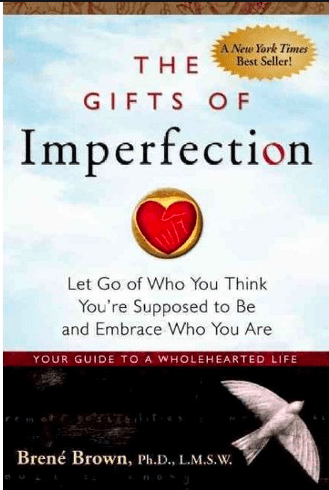
Brene Brown is a researcher, professor, PhD, a mom a wife, an author and her main work revolves around the topics of shame, guilt, vulnerability, authenticity and whole-heartedness. I couldn’t imagine a person who wouldn’t resonate with some to the examples and situations she brings in this book. Key take-aways / reminders:
- “The opposite of play is not work, but depression. “
- “The common denominator about resilient people is their faith.”
- “You can be grateful all the time, but it doesn’t mean you are happy and joyful all the time.”
- “Pause and breathe before answering.”
- “Shame loses it’s power when it is talked about.”
- “Everyone knows the “how-to” be happy, but not too many talk or think about the things that get in the way of the how-to’s.”
- “Letting go of what people think. Letting go of perfectionism and comparison.”
- “You can be brave, afraid and alive all together.”
14. Laura Hillenbrand- “Unbroken”
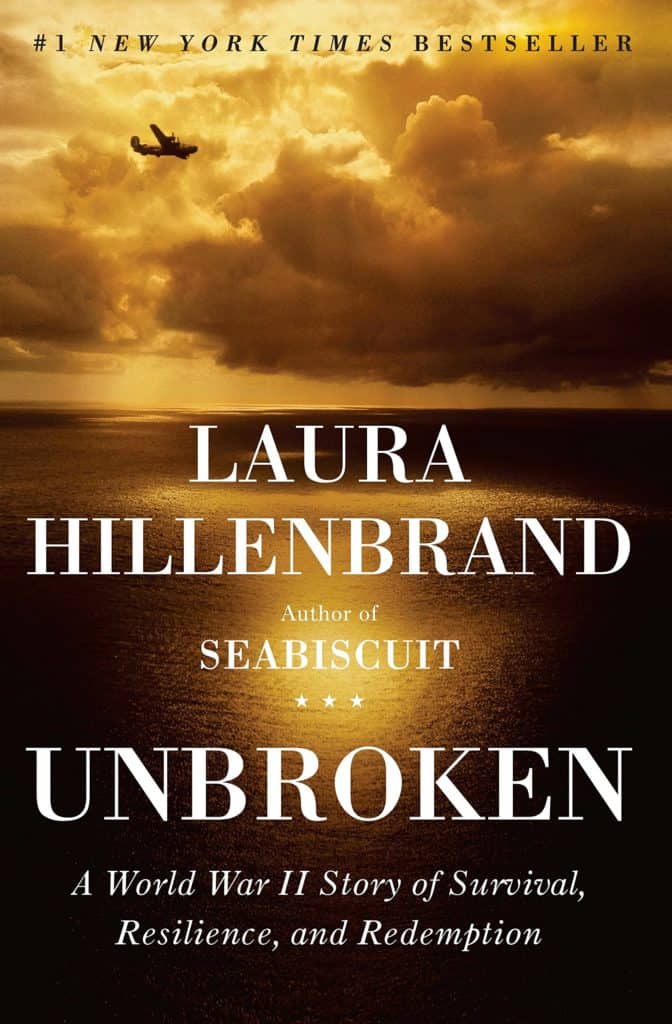
This book is about an olympian Louis Zamperini and his incredible journey through the Second World War. This book is brutal and I literally had to put it away a few times because I just couldn’t keep on reading. It’s a story about extreme misfortune, cruelty, torture, but also of survival, enormous hope, faith, willpower and forgiveness. Unfortunately it is also the reality of a lot of people gone through the war and the horrific scenarios they’ve had to face. The author really gives life to the character through her writing and it is extraordinarily moving. Key take-aways/ reminders:
- “Dignity is as essential to human life as water, food, and oxygen. The stubborn retention of it, even in the face of extreme physical hardship, can hold a man’s soul in his body long past the point at which the body should have surrendered it.”
- “When he thought of his history, what resonated with him now was not all that he had suffered but the divine love that he believed had intervened to save him.”
- “Finally, I wish to remember the millions of Allied servicemen and prisoners of war who lived the story of the Second World War. Many of these men never came home; many others returned bearing emotional and physical scars that would stay with them for the rest of their lives. I come away from this book with the deepest appreciation for what these men endured, and what they scarified, for the good of humanity. It is to them that this book {Unbroken} is dedicated,” (author)
15. Rachel Hollis- “Girl, Wash your Face”

This book was the 2nd most popular book on Amazon in 2018. The author, Rachel Hollis is a lifestyle influencer, blogger, motivational speaker, media guru and a preacher for women’s empowerment. Although her story and what she has build is absolutely incredible, I wasn’t too in awe with this book. It probably had to do a lot with this book following “Unbroken” which was just extra impactful for me. Not a big amount of new info, more motivational quotes- type of content, it is still full of great reminders and I deeply admire Rachel for the following and niche she has built and women she has impacted. Key take-aways/ reminders:
- “You, and only you, are ultimately responsible for who you become and how happy you are.”
- “Comparison is the death of joy, and the only person you need to be better than is the one you were yesterday.”
- “The only thing worse than giving up is wishing that you hadn’t.”
- “Decide that you care more about creating your magic and pushing it out into the world than you do about how it will be received.”
- “What I want to say is that we all judge each other, but even though we all do it, that’s not an excuse. Judging is still one of the most hurtful, spiteful impulses we own, and our judgments keep us from building a stronger tribe…or having a tribe in the first place. Our judgment prohibits us from beautiful, life-affirming friendships. Our judgment keeps us from connecting in deeper, richer ways because we’re too stuck on the surface-level assumptions we’ve made. Our judging has to stop.”
- “You can survive losing a piece of your heart without losing the core of who you are.”
16. David Goggins- “Can’t Hurt Me”
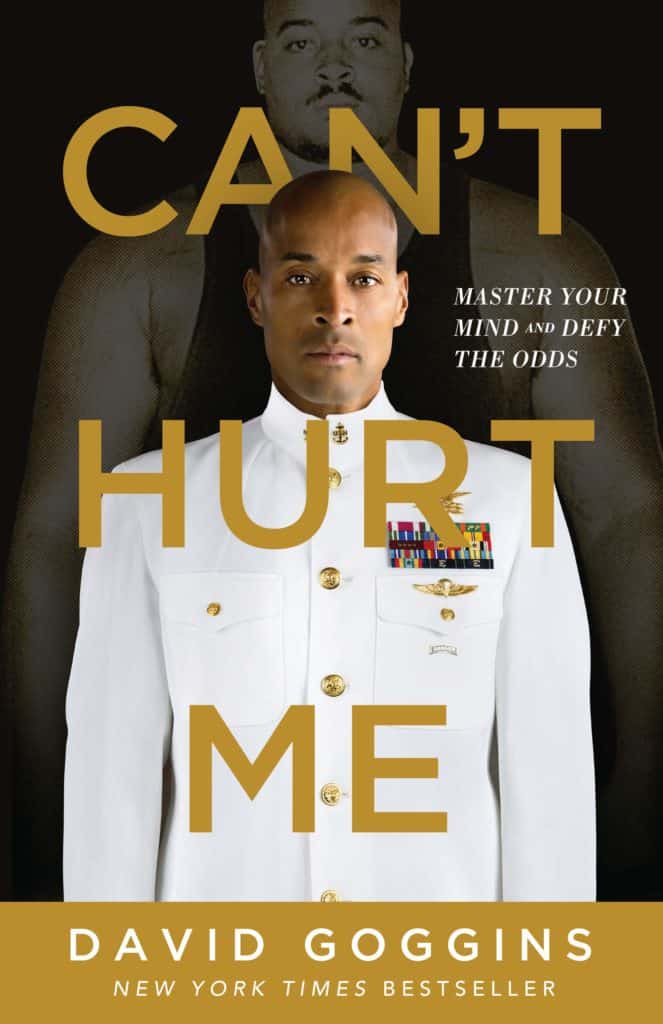
A Navy Seal, an Army Ranger, an ultra marathon runner, a triathlete, motivational speaker, author…who Davig Goggins is, sounds like a super-human. The truth is he came from nothing and is no different than any of us. His childhood was misery- poverty, physical abuse, prejudice. He was overweight for a long time and just cruising through life until he decided that being accepted to military was his number one goal. Eventually he set records for endurance races and army men and became a world-record holder in pull-ups made in a day. This book is about true self-mastery, expanding one’s belief and executing on potential. This is not a soft, motivational book, but a hard-core looking into the mirror and facing the things often only we know about ourselves. Key take-aways/ reminders:
- “We have to take OWNERSHIP for everything in our lives.”
- “Motivation is crap. It is conditional and sometimes deals you a bad hand. You have to develop habits that don’t rely on motivation.”
- “We never know what people are going through.”
- “Our mind is always looking for a path of least resistance. Our mind knows our fears, our weaknesses, our insecurities. We have to callus our mind to not brings those up.”
- “People are afraid to hear what they don’t want to hear and we do them a dis-service with continuing that.”
17. Marie Forleo- “Everything is Figureoutable”

At the beginning this seemed to me like yet another “self-help” book and I caught myself thinking- “The book title gives you already the main thing you need to take from it.” The more it progressed the more it grow on me though. I have definitely now told myself in multiple situation where options seem pretty limited- “Liisa, everything is figuroutable.” The book has many great exercises that are impactful once you actually do them along. Key take-aways/ reminders:
- “Try before deny.”
- “Do the best you can until you know better. Then when you know better, do better”
- Ask- “How can this work for me?”
- “The most powerful words in the universe are the words you say to yourself.”
- “The art of eliminating excuses means embracing the fact that your dreams aren’t made or broken by anyone but you.”
- “Fear is not the enemy. Waiting to stop feeling afraid is.”
18. George S. Clason- “Richest Man in Babylon”
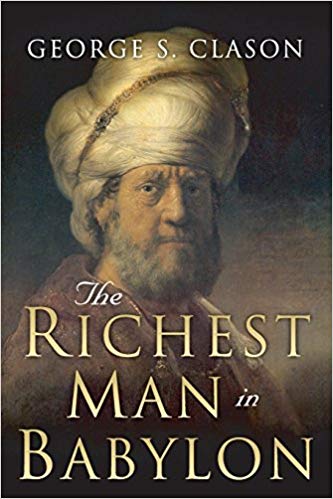
The Ancient Babylonians were the first people to discover the universal laws of prosperity. This book summarises the most fundamental financial truths. Although the book was written in 1920s the principles are the same to the modern investors. Definitely a little unusual, but multilayered tale about business and human accomplishments. Key take-aways/ reminders:
- “Our acts can be no wiser than our thoughts. Our thinking can be no wiser than our understanding”
- “But too often does youth think that age knows only the wisdom of days that are gone, and therefore profits not. But remember this; the sun that shines today is the sun that shone when thy father was born, and will still be shining when thy last grandchild shall pass into the darkness.”
- “That what each of us calls our necessary expenses will always grow to equal our incomes unless we protest to the contrary.”
- “Advice is one thing that is freely given away, but watch that you take only what is worth having.”
19.Viktor E. Frankl “Man’s Search for Meaning”

The author, Viktor E. Frankl was an Austrian neurologist, psychiatrist and a founder of the logo therapy method. He was also a Holocaust survivor and this book is about his experience in the concentration camp. Reading this it was so hard for me to imagine that this was what so many people had to face and millions and millions died of. This book reveals that the meaning of life- no matter what the odds are is always worth living if we know why we want to life. A truth that helped the strongest throughout the inhumane treating and a truth that helps us through everyday challanges- “Those who have a ‘why’ to live, can bear with almost any ‘how’.” Key take-aways/ reminders:
- “When we are no longer able to change a situation, we are challenged to change ourselves.”
- “For the first time in my life I saw the truth as it is set into song by so many poets, proclaimed as the final wisdom by so many thinkers. The truth – that Love is the ultimate and highest goal to which man can aspire. Then I grasped the meaning of the greatest secret that human poetry and human thought and belief have to impart: The salvation of man is through love and in love.”
- “No man should judge unless he asks himself in absolute honesty whether in a similar situation he might not have done the same.”
- “It is well known that humor, more than anything else in the human make-up, can afford an aloofness and an ability to rise above any situation, even if only for a few seconds.”
20. Laura Hillenbrand- “Seabisquit”

Nick has told me since we met, that one day he wants to have a French Bulldog and name him Biscuit. After reading this book I learnt why. The movie “Seabiscuit” used to be one of his favourite ones because of the amazing rags to riches story of the main character- a horse “Seabiscuit.” This book about lost souls and belief in oneself, that can make the impossible possible was beautifully and upliftingly written.
- “We had to rebuild him, both mentally and physically, but you don’t have to rebuild the heart when it’s already there, big as all outdoors.”
- “Horses stay the same from the day they are born until the day they die. . . . They are only changed by the way people treat them.”
As you can see most of the books that I read I am extremely excited about and learnt as ton. Two reasons for that. I research what I read quite a bit and I believe there is no such thing as a “bad book” there is just “inability to be open-minded.”

People prefer very different type of writing and book styles, so your experience reading some of these might be very different. Just sharing what connected with me.
2020 read books so far:
- Robert Eiger- “The Ride of a Lifetime”
- Brene Brown- “Dare to Lead”
- James Clear- “Atomic Habits”
- Gary Keller- “The One Thing”
- Kobe Bryan- “Mamba Mentality”
Reviews for those coming up…. next year:D
I am always looking for new books, so leave your favourite suggestions in the comments.
Until the next time…
Love,
Liisa.

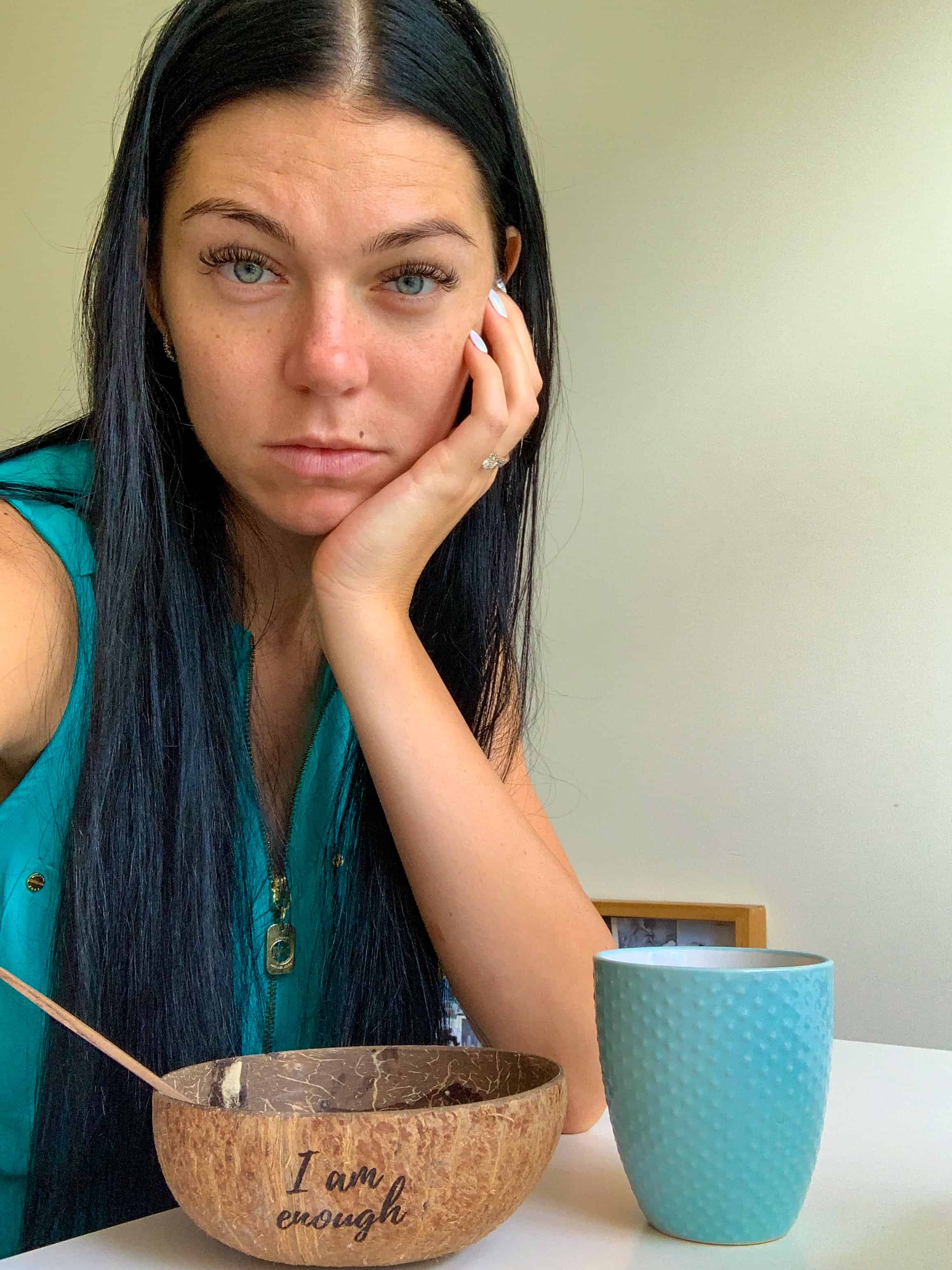
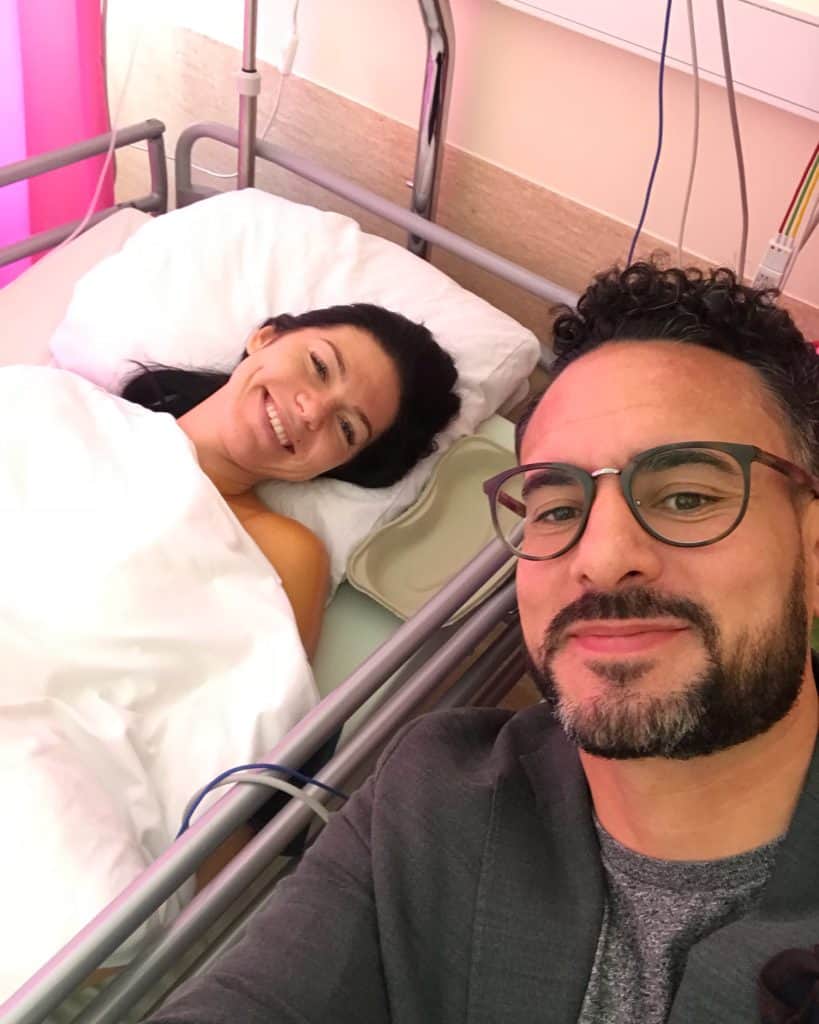

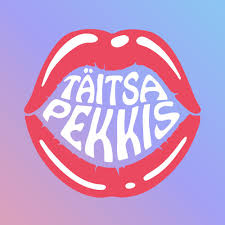

0